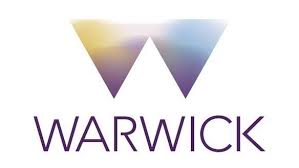University of Warwick: against COVID-19 University

Entity: University of Warwick
Category: University
Description: The University of Warwick is a public research university on the outskirts of Coventry between the West Midlands and Warwickshire, England. It was founded in 1965 as part of a government initiative to expand higher education. Within the University, Warwick Business School was established in 1967, Warwick Law School was established in 1968, Warwick Manufacturing Group (now WMG) was established in 1980 and Warwick Medical School was opened in 2000. Warwick incorporated Coventry College of Education in 1979 and Horticulture Research International in 2004. In 2013/14 Warwick had a total research income of £90.1 million, of which £33.9 million was from Research Councils; £25.9 million was from central government, local authorities and public corporations; £12.7 million was from the European Union; £7.9 million was from UK industry and commerce; £5.2 million was from UK charitable bodies; £4.0 million was from overseas sources; and £0.5 million was from other sources. In the 2014 UK Research Excellence Framework (REF), Warwick was again ranked 7th overall (as 2008) amongst multi-faculty institutions and was the top-ranked university in the Midlands. Some 87% of the University's academic staff were rated as being in "world-leading" or "internationally excellent" departments with top research ratings of 4* or 3*. Warwick is particularly strong in the areas of decision sciences research (economics, finance, management, mathematics and statistics). For instance, researchers of the Warwick Business School have won the highest prize of the prestigious European Case Clearing House (ECCH: the equivalent of the Oscars in terms of management research). Warwick has established a number of stand-alone units to manage and extract commercial value from its research activities. The four most prominent examples of these units are University of Warwick Science Park; Warwick HRI; Warwick Ventures (the technology transfer arm of the University); and WMG.
Project: 'RECOVERY-RS Respiratory Support : Respiratory Strategies in COVID-19; CPAP, High-flow, and standard care'
Summary: Severe acute respiratory syndrome coronavirus 2 (SARS-CoV-2) emerged at the end of 2019 as a new coronavirus, resulting in a current global pandemic of respiratory illness, Coronavirus Disease 2019 (COVID-19). This illness can cause serious breathing difficulties and it is important to provide ventilatory (lung or respiratory system) methods to support the patient to breathe. Deciding which form of ventilatory support for patients with COVID-19 is the most effective is critical to ensure the best therapy is given to patients and to protect vital UK critical care resources and NHS organisations. The trial will also have the potential to provide information on the global ventilation practice for patients with COVID-19. This trial will look at three different approaches to providing ventilatory support to patients suspected or confirmed COVID-19, all of which are currently in use in clinical practice at present; High Flow Nasal Oxygen (HFNO), Continuous Positive Airway Pressure (CPAP), and standard care involving regular oxygen therapy. The project will see which is more effective in relation to survival of patients and intubation (tube inserted in to patient's throat to help them breathe). There is currently little evidence to support the use of HFNO or CPAP compared to standard care in patients with COVID-19. This trial will also look at other important outcomes in patients whilst they are in hospital such as how long it takes to intubate a patient, time to death, survival in critical care and hospital stay and length of critical care and hospital stay up until 30 days or hospital discharge, whichever comes later.
The trial is a multi-centre randomised controlled trial taking place in 40 hospital sites in the UK with the aim to recruit 4,002 patients. The trial will take place over a period of 18 months.
This project is a collaborative study between Queen’s University Belfast, the University of Warwick and Wellcome-Wolfson Institute that is testing the efficacy of non-invasive interventions at an earlier stage in disease progression as an effective alternative to using ventilators for COVID-19 patients. (NIHR funded; Danny McAuley, Wellcome-Wolfson Institute For Experimental Medicine).



.jpg)
